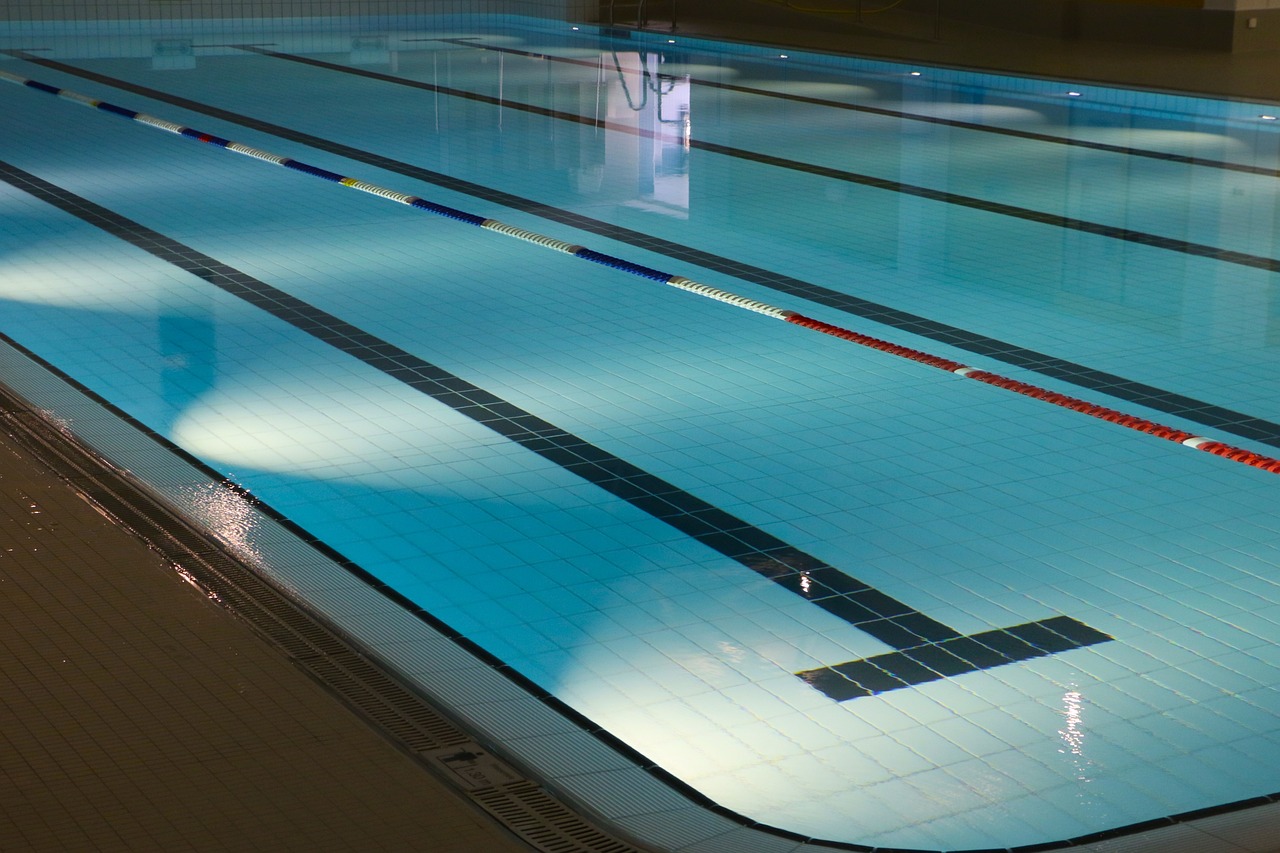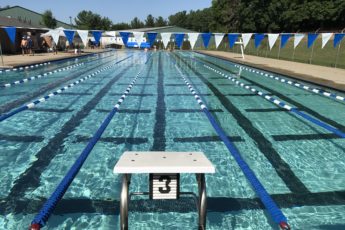I recently became a high school swim official in Maine (USA), and I just attended my first high school swim officials live training by shadowing an strokes and turns official at a swim meet. I will start out my officiating as a stroke and turn official. The job of this official is to essentially watch the swimmers to make sure they are not breaking any rules when it comes to the swimming strokes (backstroke, butterfly, breaststroke, freestyle), and to make sure they are doing legal turns at the wall.
I had a lot of fun at my first swim meet. It brought back great memories of my high school swimming days. I found myself smiling often during the meet. I was having so much fun.
It was nice to learn from someone who has been doing the job for a while and to listen to his tips for being a great official. Not only was he helpful with “showing me the ropes” (or should I say lane lines), but he is a great guy. And I enjoyed learning from the other officials as well, one of which was the referee and the other was the starter.
The biggest rule I learned, which I had read about but was reinforced at the meet, was that we are always to give the benefit of the doubt to the swimmer. That means, if we aren’t certain they are breaking the rules, then we don’t raise our hand to disqualify them.
I really like this rule. Give the benefit of doubt to the swimmer. In other words, let the swimmer compete to the best of their ability, and only DQ them if we are certain that they broke the rules.
This rule reinforces that we are there as officials to maintain good sportsmanship, and to help the swimmers compete and become better swimmers. It takes into account the human element of officiating. The human eye can miss details. This is why lawyers know that eye witnesses are not always reliable. The rule encourages fair competition, and integrity in the sport. We must be certain that the rules have not been followed. And this rule makes it clear that we must have clear evidence to disqualify the swimmer, which leaves no room for personal feelings, interpretation, or judgement.
Also, I think this rule exists to help swimmers learn life lessons – regardless of the age of the swimmer.
How often in life do we not give others the benefit of the doubt? How much nicer would it be if we did? We often apply judgement, and labels to ourselves and others and don’t practice this life lesson. How often do we act without knowing all of the facts and details of a situation? Or perhaps we misinterpret the “facts”?
What would it be like if everyone lived their lives by giving themselves and others the benefit of the doubt?
Happy Swimming







Leave a Comment